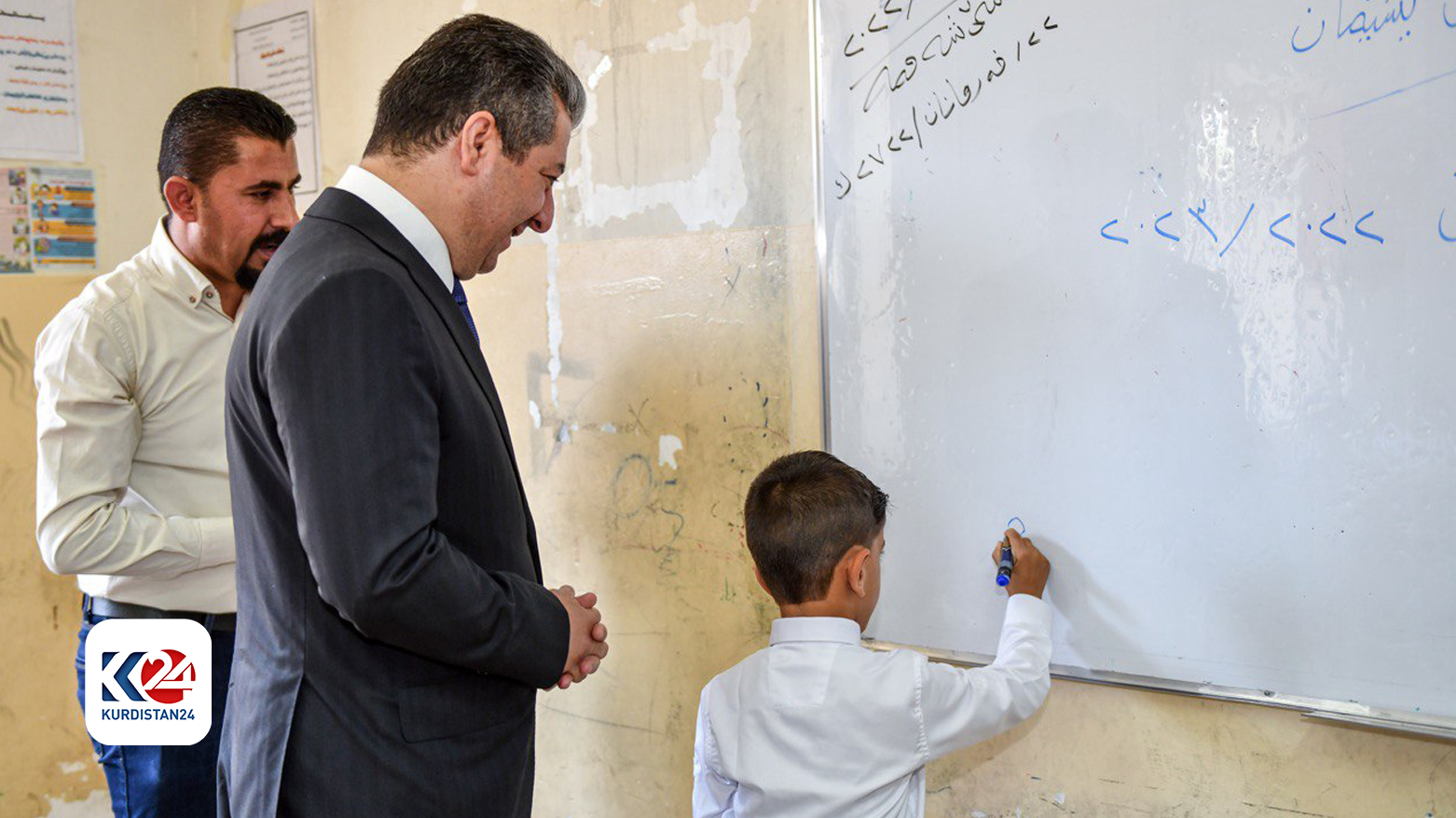Kurdistan Region’s Ninth Cabinet achieves major milestones in education reform
Since the beginning of the ninth cabinet, the government has taken numerous steps to enhance education, issuing several key decisions that have brought about significant improvements.

ERBIL (Kurdistan24) – Despite facing multiple challenges, including a financial crisis and the COVID-19 pandemic, the Kurdistan Region’s Prime Minister Masrour Barzani has remained committed to advancing the education sector.
Since the beginning of the ninth cabinet, the government has taken numerous steps to enhance education, issuing several key decisions that have brought about significant improvements.
Recruitment of Lecturers
One of the most impactful decisions made by Prime Minister Masrour Barzani is the recruitment of over 40,000 lecturers across the Ministries of Education, Higher Education, and Scientific Research on a permanent contract basis.
This initiative has been widely praised, with many expressing gratitude to the Prime Minister for his dedication to the education sector and his commitment to upholding teachers' rights.
The recruitment process is currently underway, with the list of names to be verified and submitted to the relevant ministries within the next week.
Printing New Books for the Academic Year 2024-2025
In preparation for the new academic year, the Ministry of Education has printed 19.768 million textbooks at a cost of more than 24 billion dinars.
The books, which have been printed in the UAE using new digital methods, include 57 types of books with updated designs and content. These books have been designed to be more appealing to children, with features such as QR codes that allow students to access lesson materials at home.
During the ninth cabinet, the content and design of 407 books across various languages, including Kurdish (Kurmanci and Sorani), Arabic, English, and Syriac, have been updated.
Expansion of Educational Infrastructure
To address the issue of overcrowded schools and eliminate the two-shift and three-shift systems, the ninth cabinet has embarked on an ambitious infrastructure expansion plan.
For the 2024-2025 school year, 42 new kindergarten and school buildings will be opened in September and October, leading to the phasing out of the two-shift system in most schools.
Additionally, over 195 new buildings have been constructed and 1,503 schools have been renovated, creating space for more than 100,000 students in the public sector.
Reintegrating Separated Students
A key objective of the ninth cabinet has been to reintegrate students who have been separated from the education system for various reasons.
According to the Ministry of Education, more than 26,000 students have been brought back to school across different cities in the Kurdistan Region during the current cabinet's tenure.
Launch of Educational Platforms
The ninth cabinet has also overseen the launch of several educational platforms aimed at enhancing the quality of education and making resources more accessible:
- Library and Training Platform: This platform was launched to train teachers and record data on public and private schools. It currently hosts the data of tens of thousands of teachers and thousands of schools, with plans for further development.
- E-Ktebxana (Electronic Library Platform): Established to encourage reading among teachers and students, this platform tracks the number of pages and books read each month, allowing users to access educational books and publications using personal codes.
- E-Xezan (E-Family) Platform: Developed in collaboration with UNICEF and Bradost School, this platform provides Kurdish families with tools to guide their children's education through graphics and animations.
- E-Balaxana (E-Building) Platform: This platform digitizes educational buildings constructed, renovated, or expanded during the ninth cabinet, as well as land allocated for education across Kurdistan.
Improving Education Quality
The ninth cabinet has focused on improving education quality by establishing a confidence committee at the behest of Prime Minister Masrour Barzani. This committee sets appropriate standards for the education process and curriculum in the Kurdistan Region.
Rewarding Teachers and Students
The Ministry of Education has introduced incentives to encourage reading. Teachers who motivate the most students to read will be recognised as Teacher of the Year, while students who read the most books will be rewarded by their school principals.
Introduction of Solar Energy Systems in Schools
To promote sustainability, 60 schools in the Kurdistan Region have been equipped with solar energy systems, with 33 of these projects funded by UNICEF. Plans are underway to convert an additional 72 schools to solar power using the KRG budget.
Supporting Students Who Survived ISIS
In a significant humanitarian effort, the Ministry of Education has announced measures to support students who survived ISIS attacks.
A special committee has been established to oversee the reintegration of these students, particularly in Duhok province and Zakho independent administration.
Survivors who were excluded from education due to age restrictions will now have the opportunity to continue their studies, with those who have completed the 9th grade entitled to free education at private institutions for five academic years.
These initiatives reflect the Kurdistan Regional Government’s commitment to providing high-quality education and ensuring that all students, regardless of their circumstances, have access to learning opportunities.